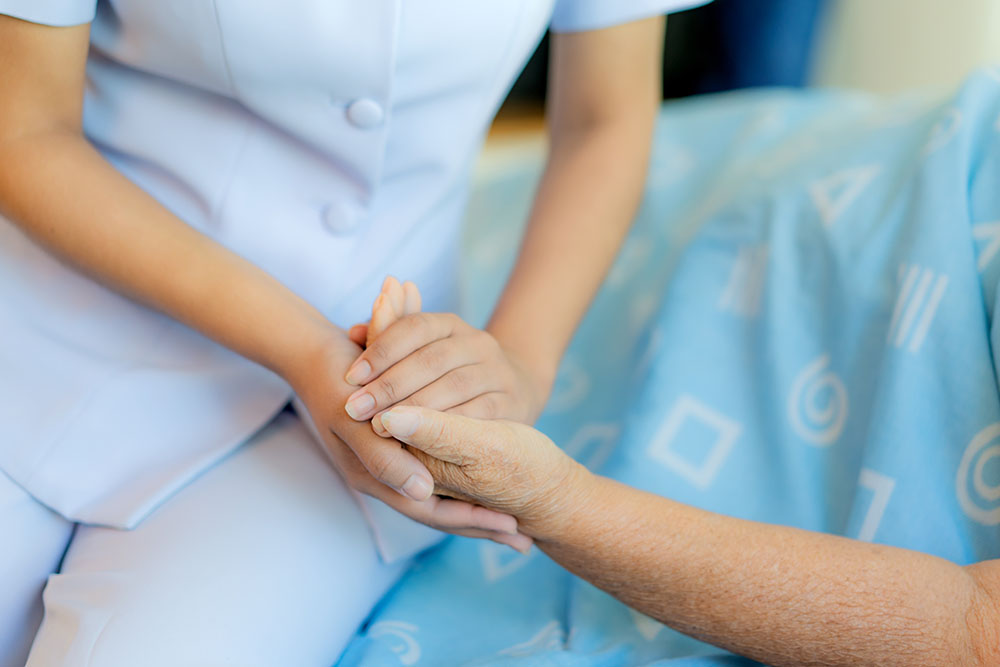Do Care Homes Need Trauma Cleaners?

CONTENTS
- What is trauma cleaning?
- Are trauma cleaners healthcare staff?
- Why do care homes need biohazard cleaning?
- The risks of cleaning by yourself
- Get in touch
Maintaining high levels of cleanliness in healthcare settings like care homes or assisted living facilities is a high priority. Vulnerable individuals who are immunocompromised or unwell require safe and clean environments, especially when the risk of infection is high after death.
Here at ICE Cleaning, we offer discreet and effective trauma clean-up services. Our technicians are accredited by the National Association of Crime Scene Cleaners, which equips them with the necessary skills and solutions for biohazardous situations.
Read on to learn more about trauma cleaners and why care homes will need them.
What is trauma cleaning?
The process of trauma cleaning includes cleaning scenes where biohazards and dangerous substances may be present. It requires discretion and sensitivity due to the circumstances where trauma cleaning is needed. Trauma cleaning is often used for:
- Murders
- Suicides
- Road traffic accidents
- Undiscovered deaths
- Healthcare settings
These services are required to ensure that there are no biohazards at the scene, such as blood or bodily fluids, which can cause harm to the public.
Are trauma cleaners healthcare staff?
When a death occurs, there may be authorities present depending on the circumstances. Medical professionals will likely be on-site when a death is reported to move the deceased and identify any hazards present.
However, paramedics, doctors or nurses are not responsible nor trained for trauma cleaning. Trauma cleaners are provided by a third-party company which will have specialist training to use the solutions and tools necessary to decontaminate an area.
The equipment and chemicals they use are unavailable to the average consumer and can be dangerous in the hands of inexperienced people. For the safety of authorities and healthcare staff, they only do what is necessary to document and understand what caused the death.
After that, the area will be handed off to trauma cleaners to clean up any biohazards and make it a safe place again.
Why do care homes need biohazard cleaning?
Adult social care services like care homes or assisted living facilities have staff that must keep these areas safe and clean. They are trained and legally obligated to follow the general infection prevention and control guidance (IPC).
This includes understanding general hygiene, utilising PPE, managing equipment, disposing of hazardous waste, and taking precautions when blood or bodily fluids spill.
When a death occurs in these facilities, a doctor or GP will be present to understand the cause of death. Authorities like the police could also be on-site if the death was unexpected or traumatic.
These types of death in care facilities that were violent or traumatic might require care home trauma cleaning services instead of healthcare staff to conduct the cleaning. However, employees may already be trained to contain a contaminated scene.
There is a risk to cleaning these scenes because the deceased may have experienced a traumatic death or were already unwell with an infectious disease. This will pose as a biohazard to potential workers, cleaners, or other patients.
Other individuals in the care home could be unwell and vulnerable due to their lowered immune systems. Because of this, thorough decontamination will be required to protect both staff and residents, especially when bloodborne pathogens might be present such as:
- Hepatitis B (HBV)
- Hepatitis C (HCV)
- Human immunodeficiency virus (HIV)
- Malaria
- Syphilis
The risks of cleaning by yourself
You must not try to clean up after a death yourself unless you are qualified to do so. Medical personnel must follow effective IPC measures to prevent the spread of infection.
Healthcare staff on-site might already be qualified and trained to clean bodily fluids but other facilities may outsource to an external service for cleaning.
If the death was unanticipated or traumatic, you may be vulnerable to sharp or hazardous objects, and it could be distressing to attempt to clean this yourself. If the individual was unwell with an infectious illness, you are at risk of contracting it yourself or passing it on to someone else.
Any fluids or biohazardous waste that has stained soft furnishings will be difficult to remove without the proper training and industrial-grade solutions.
You must instead contact a reputable company for trauma cleaning services, who have the tools and protective equipment necessary to tackle biohazardous scenes.
Get in touch
Our technicians can provide trauma cleaning services for care homes and assisted living facilities. They are qualified to handle biohazardous waste and can decontaminate an area with infectious bodily fluids.
Our team are available for trauma cleaning 24 hours a day, 7 days a week. We can be on-site in a matter of hours in the event of an emergency. To learn more about our services, contact our friendly support team at 0208 066 0360 or send an inquiry to enquiries@icecleaning.co.uk.

Speak with me today,
I’m here to help
By asking you a few questions either via phone or email I can immediately provide a realistic estimation of the cost.
You’re in good company. We’ve cleaned for the following commercial clients… View all

Why choose us?
- Cater to a wide variety of cleaning situations
- Nationwide coverage, available 24/7
- Cater to commercial and domestic clients
- Free survey provided prior to quotation
- Emergency response team
- Offer a bespoke service designed to suit all your needs
- All technicians hold professional health and safety qualifications, including BICSc, IOSH, Dewpoint Professional & Safe Contractor
We’re fully accredited
We place best practise, professional expertise and health and safety at the core of our business. We’re fully compliant with all legal obligations. You can view a list of our accreditations below, or visit our Health & Safety page for more information.











-RGB-small.1707319151.jpg)




















